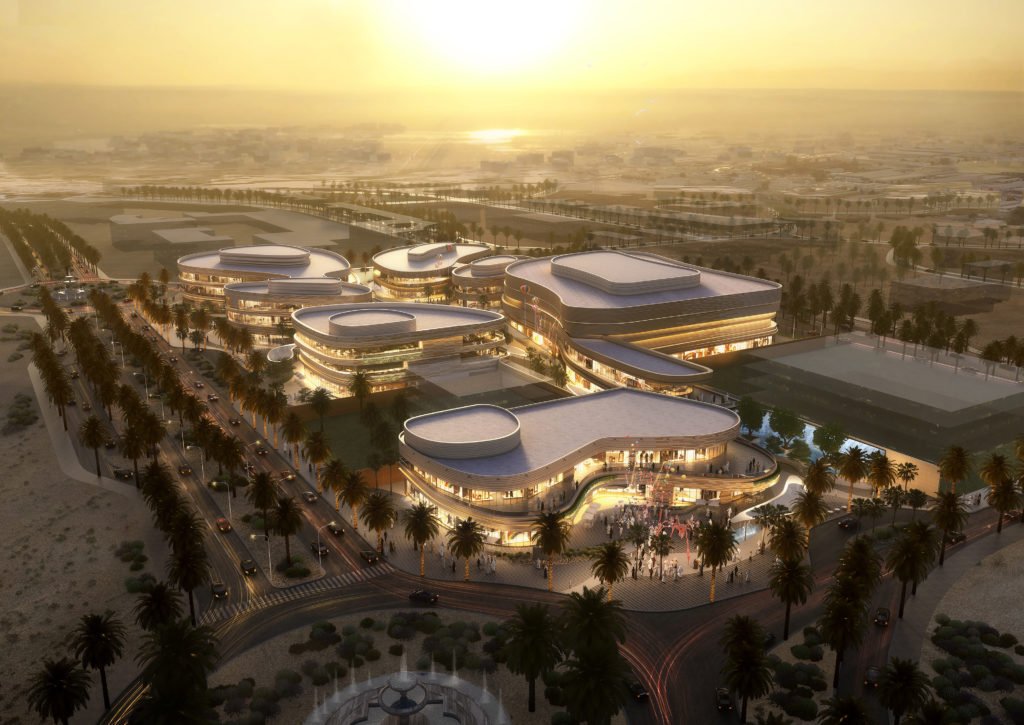Gensler Publishes Design Forecast 2024 Report
Sustainable Design Becomes a Non-Negotiable in the Middle East and Beyond

Gensler, the world’s largest design firm has published its annual forecast report on global trends across the built environment. The report reveals seven key trends that are shaping the building industry in the Middle East, including the non-negotiable necessity of sustainable building practices, AI’s immense potential to accelerate ideas and innovations, and the allure of the 20-minute city.
Tim Martin, Principal and Managing Director of Gensler Middle East commented: “The 2024 Design Forecast gives a unique insight into the most pressing issues we face today – both globally and here in the Middle East – and how we can leverage the power of design to make a positive impact. Fresh off the heels of COP28 in Dubai, there’s a spotlight on the region and it’s encouraging to see that climate action in the built environment will continue to be a focus into next year. Outside of sustainability, we’re already seeing how AI can be leveraged to redefine the design process through Gensler’s proprietary technology suite, as well as how the 20-minute city is becoming increasingly attractive in the Middle East.”
The 7 most important signals and key opportunities in the building industry, as highlighted in Gensler’s 2024 Design Forecast Report are:
Trend 1 – Experience Multipliers Pay Premium Dividends: Now more than ever before, people are craving phenomenal, visceral, and connected experiences in every part of their lives, whether that’s in a workplace that feels like a clubhouse or a sports stadium that anchors a vibrant, 24/7 mixed-use entertainment district. In 2024, real estate leaders will find success reclaiming human connection with “experience multipliers”: immersive designs that drive loyalty, boost sales, and improve vibrancy with a shared sense of inspiration and belonging.
Trend 2 – Conversions Resurrect Stranded Assets: Office-to-residential conversions and other creative repositioning will represent a new value proposition for the building industry: transforming under-performing office buildings into housing and addressing a vital need for new residential options in cities. As organizations seek out fully amenitized, recently built projects, this “flight to quality” is stranding under-capitalized and unoccupied B and C buildings in urban cores around the world. In 2024, expect more government municipalities to incentivize adaptive reuse strategies and conversions whose renovations breathe new life into cities and offer vital infrastructure enhancements — and do it in an environmentally responsible way.
Trend 3 – Sustainable Design Becomes a Non-Negotiable: As intense weather and climate change assail the built environment, sustainable design shifts from an option to an obligation. By 2024, the building and real estate industries around the world will recognize the value of environmentally conscious design and its ability to mitigate risk. Higher standards for products and materials, the adaptive reuse of existing buildings, net zero energy strategies, and regenerative design principles will define our sustainable future.
Trend 4 – The Future of the Workplace as a Compelling Destination: As more organizations understand that the workplace landscape has permanently changed, the focus will shift less on how many people come into the office and more on what the future of work looks like to support their people’s needs. In 2024, organizations will continue to plan for in-person experiences in spaces that are agile and flexible enough to evolve with the changing demands of the workforce and useful enough to earn people’s commutes.
Trend 5 – Mixed-Use Lifestyle Districts Bring Cities Back to Life: Monolithic, office-focused downtowns have become a thing of the past, replaced by vibrant, experience-driven social districts that are focused on a mixed-use collection of retail, entertainment, sports, housing, and other lifestyle-anchored developments. By prioritizing safety and mobility in these new multimodal districts, cities can attract residents and tourists and bring COVID-impacted neighborhoods back to life.
Trend 6 – Designers Harness AI to Accelerate Ideas and Innovation: In 2024, AI will open the door to new ideas, new talent, and new creative opportunities. Far from replacing designers, AI will become a collaboration tool that will help designers redefine the design and innovation process with new insights, rapid iterations, and more immediate response times. Buildings and spaces designed with the help of AI will be more sustainable, better performing, and more responsive to individual needs and preferences.
Trend 7 – 20-Minute Cities Become Archetypes of Equity and Accessibility: As city leaders seek out design strategies to help them enhance their central business districts to be more lifestyle-oriented, the idea of the 20-minute city remains increasingly attractive. These vibrant, walkable neighborhoods, where all essentials lie within a 20-minute reach — including restaurants, retail spaces, medical facilities, educational places, and much-needed residential alternatives — are redefining city living. This trend underscores the importance of creating accessible, inclusive urban spaces that promote equity, connectivity, and community.
About Gensler Gensler is a global architecture, design, and planning firm with 53 locations and 6,000+ professionals networked across the Americas, Europe, Greater China, Asia Pacific, and the Middle East. Founded in 1965, the firm works globally with more than 3,500 clients across 33 practice areas spanning the work, lifestyle, cities, and health sectors. We are guided by our mission to create a better world through the power of design and believe the source of our strength is our people.
